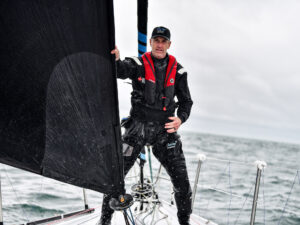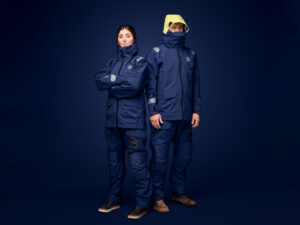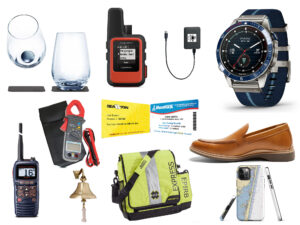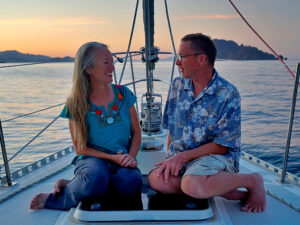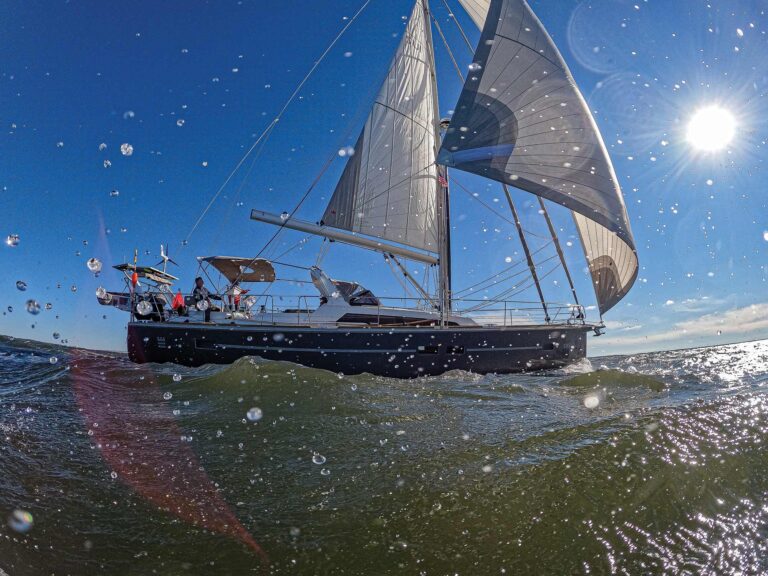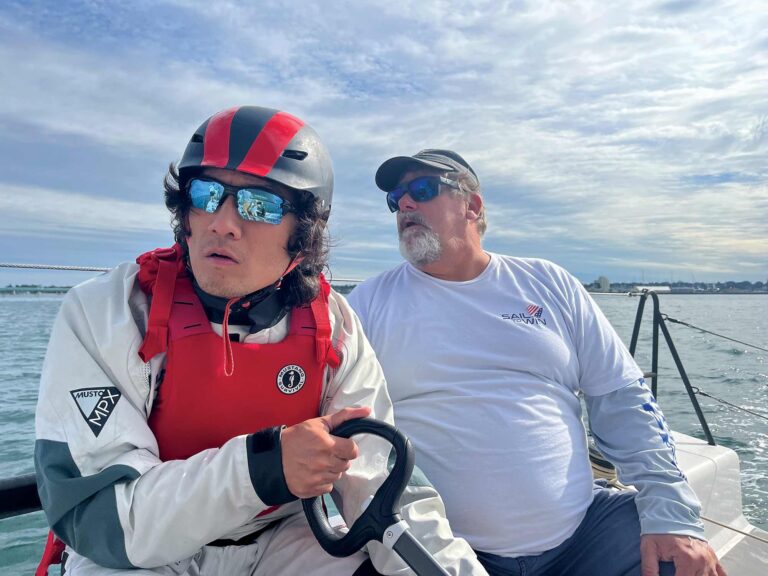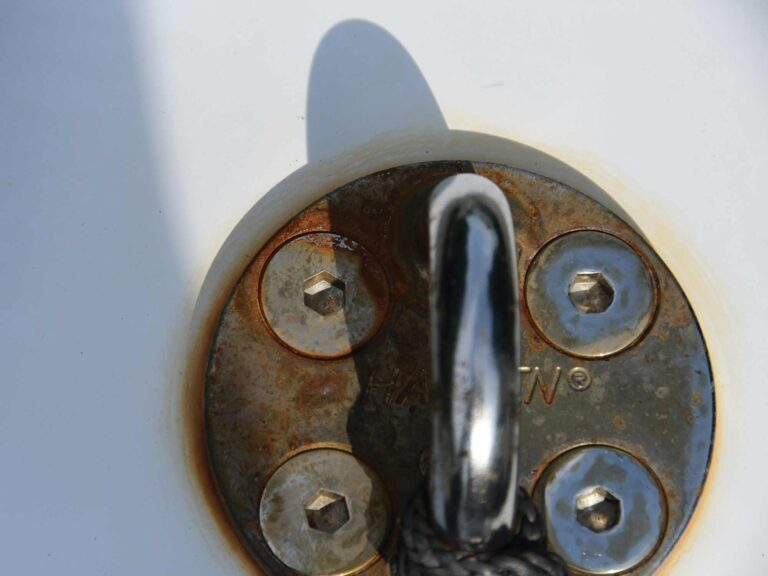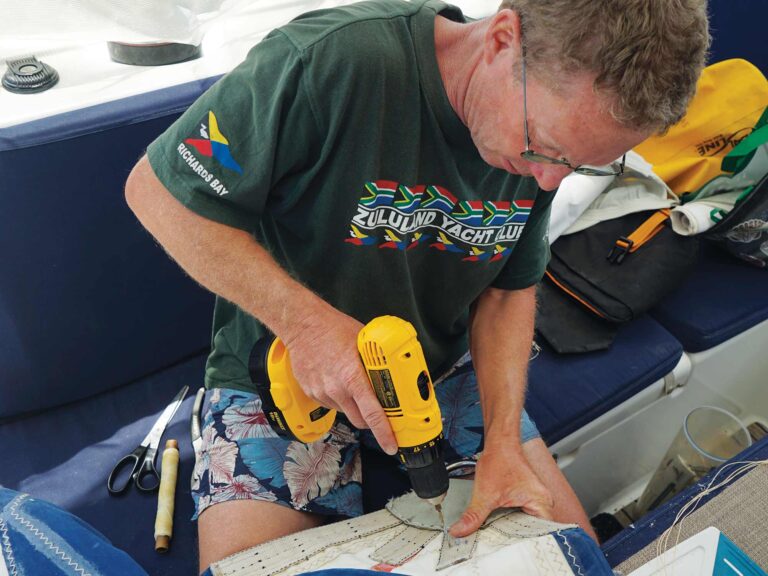No Fuss Slow Cooking
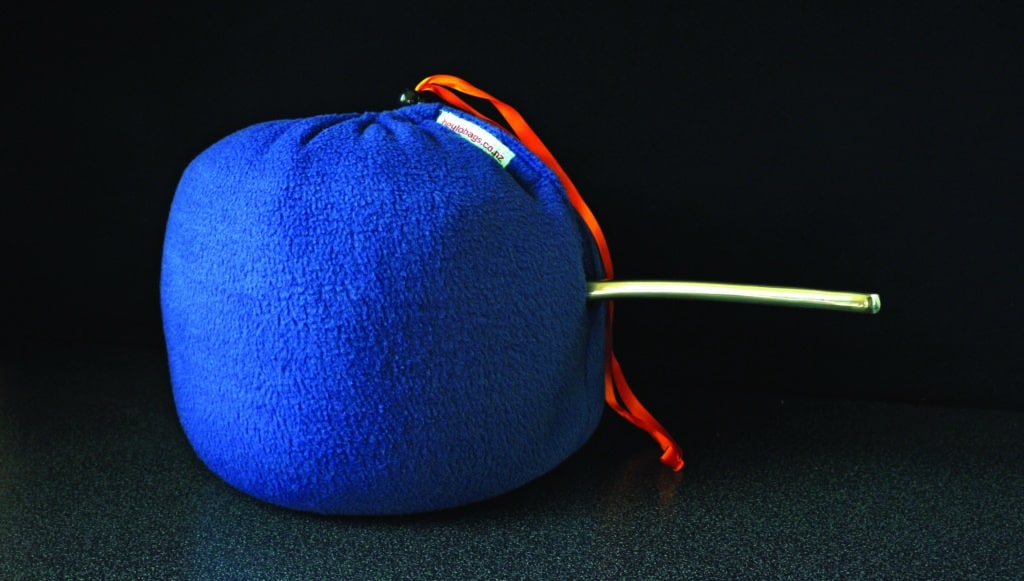
Slow cooking aboard a sailboat is a problem for one simple reason: Meals that require prolonged simmering or endless oven-braising use too much valuable cooking fuel. Even meals that don’t need prolonged cooking require the cook to remain nearby while he or she, well, cooks. The land-based cook’s solution — the Crock-Pot — is impractical to use aboard most sailboats. New Zealander Tish North, who is both a sailor and a trained chef, has designed a solution that’s ideal for cruisers. The Heylo Bag, a compact, washable pouch made of outer layers of polar fl eece and an inner layer of miniature Styrofoam balls, uses heat retention to cook food — a method Tish first encountered while living in Africa.
“Heat-retention cooking is a very old concept, commonly used,” she says. “To do my slow cooking there [in Africa], I used two beanbag-like cushions in a cardboard box. When I came to New Zealand, I brought the idea with me.” The result is the Heylo Bag. After a minimal initial cooking time on the stove-top, the insulated bag slowly cooks food by maintaining cooking temperature. As an added bonus, the bag also can be used to keep food or beverages hot, cold or even frozen for hours on end — or to cook simple staples like rice, pasta, soups or stews without having to hover over the stove.
To use, simply place ingredients in a pot and cook briefl y on the stove-top. Turn off the stove, remove the hot pot, place it in the insulated bag, seal and walk away. Let it sit until the ingredients are cooked to perfection. Initial and in-bag cooking times vary according to each recipe, but most dishes require 10 to 20 minutes of initial cooking, with a standing time in the bag of three to four hours. Tish off ers a selection of starter recipes on her website; you can easily adapt your own favorite recipes for slow cooking. Cruising World tested a standard-size bag using Tish’s recipe for slow-cooked baked beans, using pre-soaked dried (not canned) beans. The result was delicious.
Bags come in two sizes: standard for $38 and large for $49, plus shipping. (Prices online are in NZ Dollars; the website will automatically convert amounts to your currency before you buy.) For more information, or to order, go to www.heylobags.co.nz.
Hot Food — No Fuel
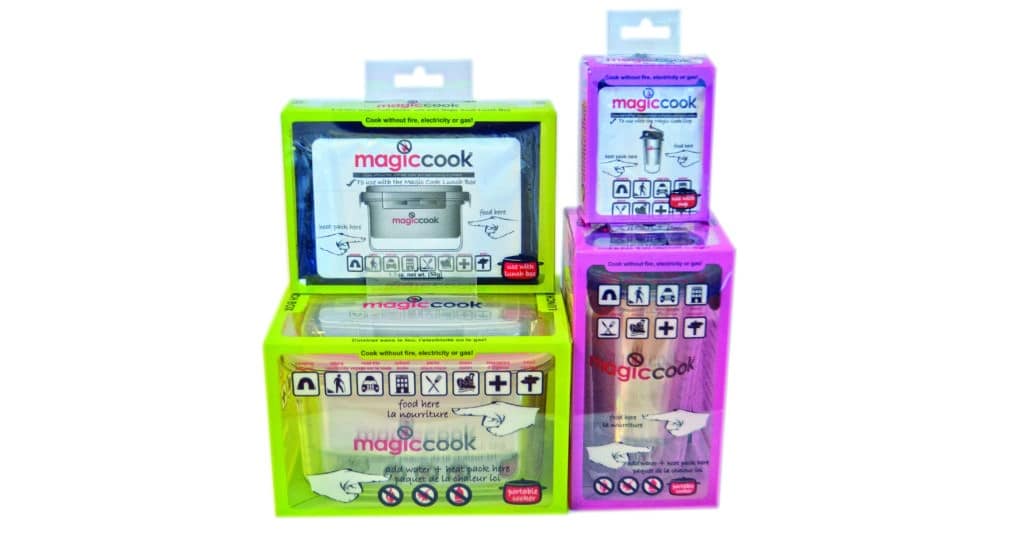
For stocking your ditch kit or life raft — or even for a quick hit of hot rations on rough-weather passages when the stove is off-limits — a new product line from Magic Cook is worth a look. The Lunch Box uses a combination of small, nesting stainless-steel and plastic containers, plus fl uid-activated, mineral-based heat packs to produce piping hot food or drinks in minutes — no stove, flame or microwave oven needed. Ideal for heating up canned items or even freeze-dried emergency supplies, it’s compact, lightweight and portable. The company says any fl uid can be used to activate the heat packs, including water, seawater or juice. Containers are reusable; heat packs are for one-time use only.
Cruising World tested the Lunch Box using canned chowder: After a few minutes in the sealed Lunch Box, the soup was piping hot and ready to eat right from the plastic container — no bowl needed. For more information, visit the website (magiccook.net). The Magic Cook Combo Cup and 10 heat packs are $40. The Magic Cook Combo Lunch Box and 10 heat packs are $55. (Additional heat packs are available separately.) Magic Cook products are also available online from Amazon, Sears and Kmart.

